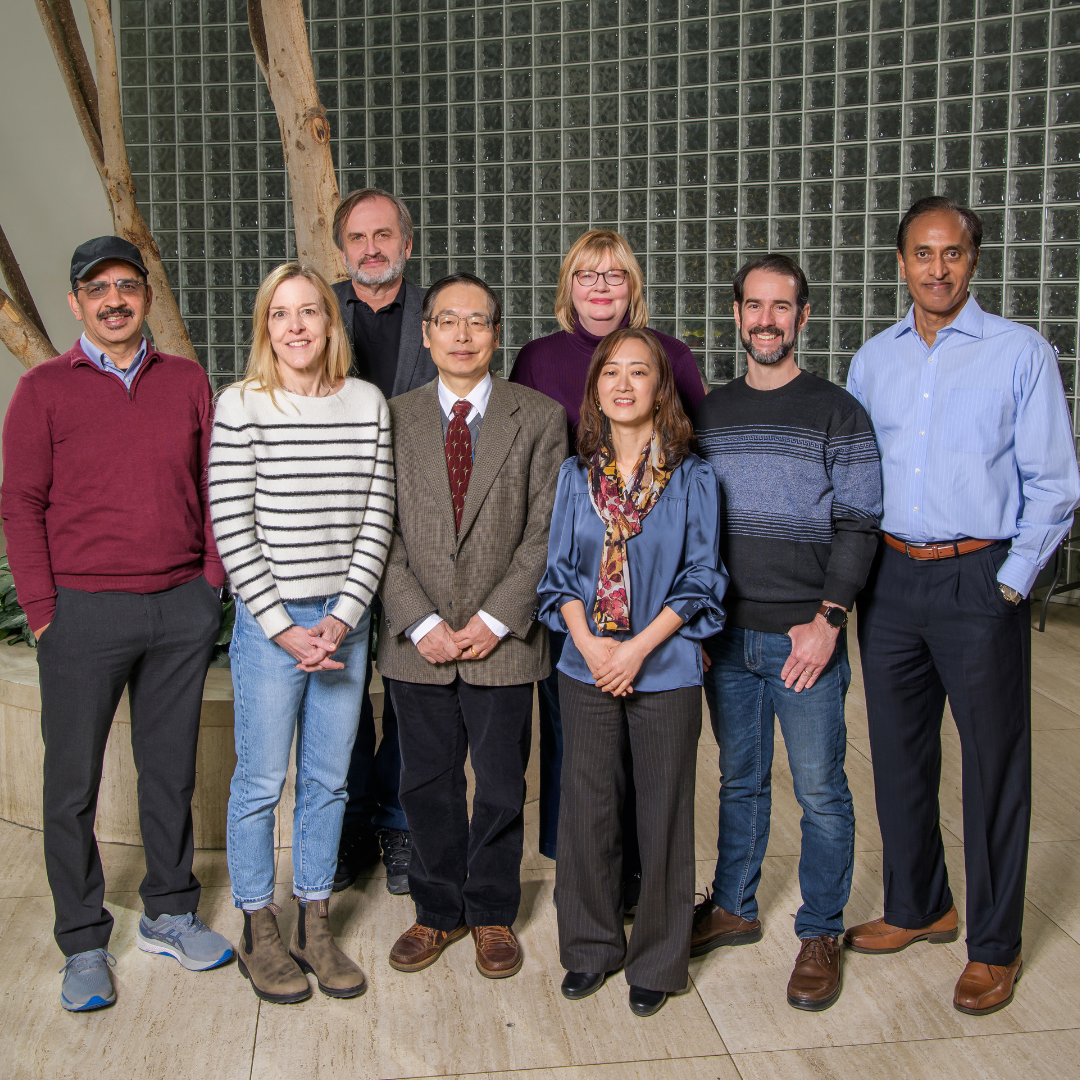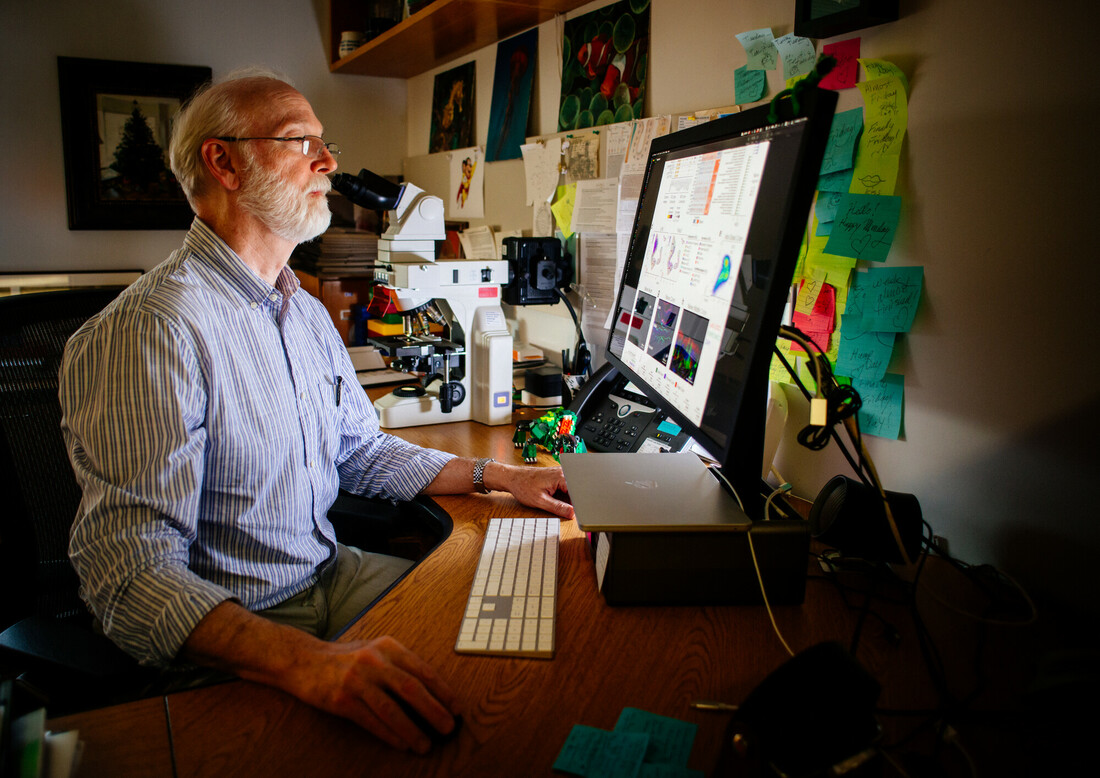 The research enterprise for academic medical centers nationwide took a hit during the COVID-19 pandemic. With temporary lab closures, hiring freezes and layoffs, social distancing and other precautions limiting many investigators’ ability to conduct their work, it was a challenging time. The upside to this for some may have been the chance to write, submit, revise and resubmit grant funding proposals.
The research enterprise for academic medical centers nationwide took a hit during the COVID-19 pandemic. With temporary lab closures, hiring freezes and layoffs, social distancing and other precautions limiting many investigators’ ability to conduct their work, it was a challenging time. The upside to this for some may have been the chance to write, submit, revise and resubmit grant funding proposals.
As with any grant funding cycle, the process sees delayed gratification, with award notices coming many months after the submission of proposals. However, in the UAB Department of Pathology, that reward came to fruition for many of our research faculty in 2023. The department saw the award of 12 R01 grants alone, making it a banner year.
The Research Project Grant (R01) is the original and historically oldest grant mechanism used by NIH. According to the institution, it “provides support for health-related research and development based on the mission of the NIH.”
UAB Pathology research faculty spun gold out of proverbial straw and the result is a total of more than $30 million in R01- funded projects alone for the department over the next five years. The result is a bump into the top 10 NIH-funded departments for the year (as reported by the annual Blue Ridge Rankings), up 11 spots from our 2022 ranking.
“The Department of Pathology has excelled in its research efforts with their faculty engaged in scholarly and high impact investigation, and the result is an impressive number of grants funded across a vast spectrum of research topics,” says Anupam Agarwal, M.D., Senior Vice President for Medicine and Dean of the Heersink School of Medicine. “UAB Pathology faculty, leadership, and the administrative team supporting them are to be congratulated for their success in such innovative and collaborative research in crucial topics in medicine impacting our area, for the next several years.”
For some faculty the awards are their first, while others are seasoned researchers who host more than one of these grants at a time. The content areas they span is vast—from Alzheimer’s disease to breast cancer, liver disease and heart failure, to the rare ZTTK Syndrome, secondary mold infections in COVID patients, and T regs and redox signaling, and more.
“The enormous success of our faculty is a true testament to their resilience and passion for research, even during challenging times,” says Selvarangan Ponnazhagan, Ph.D., Endowed Professor in Experimental Cancer Therapeutic and Interim Vice Chair for Research, UAB Pathology. “It is this collective commitment to research alongside the dedicated clinical mission of the department that enables us consistent national recognition as one of the premiere pathology departments in the country.”
According to Erin White, CRA, CRFA, Director of Financial Research, the department saw an overall increase of nearly $9 million in NIH research funding in from FY2022 to FY 2023. White and her team have been instrumental in supporting the submission of these grant proposals, ushering faculty through the process from start to fruition. In fall of 2022, the department centralized its pre-award process, which she says, “played a role in the department’s increased funding for FY2023.
“Faculty have the opportunity to work with experienced grant administrators who understand and value the importance of research, not only for Pathology but for UAB,” she says. “Centralizing the pre-award process removes the unavoidable administrative burden from the faculty and allows my team to effectively manage this for them, allowing for that all-important time to focus on writing their research.”
Following is a list of the awards (in chronological order from award date). While we don’t have room to describe them here, each is explained in full on our website, which we encourage you to visit.
Erin Eun-Young Ahn, Ph.D., an associate professor in the UAB Department of Pathology’s Division of Molecular and Cellular Pathology, was awarded an R01 from the National Institute of Health’s (NIH) National Heart, Lung, and Blood Institute for the project titled, “Genetic and molecular basis of hematopoietic abnormalities in ZTTK syndrome.” The grant, funded for $2 million, began March 15, 2023, and will run through December 31, 2026.
Selvarangan Ponnazhagan, Ph.D., Endowed Professor in Experimental Cancer Therapeutics and Vice Chair for Research, was awarded a $1.7 million R01 grant from the National Cancer Institute based on his project submission, titled, “Mechanisms and therapeutic targeting of osteoimmune functions of RANKL in breast cancer.” The award will run through March 31, 2027.
Shu Chen, Ph.D., Ona Faye-Petersen Endowed Professor, Neuropathology, was awarded an R01 grant funding his research on biomarkers for early diagnosis of mixed pathologies in Alzheimer’s disease and Alzheimer’s disease-related dementias. The grant, from the National Institute on Aging, is funded at $3.68 million over five years, through 2028.
Adam Wende, Ph.D., Associate Professor, Division of Molecular and Cellular Pathology, received a R01 grant from the National Heart, Lung, and Blood Institute of the NIH to study new roles of specific proteins called pyruvate dehydrogenase kinases, or PDKs, in heart failure. The $2.3 million grant runs through 2028.
Shannon Bailey, Ph.D., Professor, Molecular and Cellular Pathology, Chair, UAB Institutional Animal Care and Use Committee (IACUC), was awarded an R01 grant funding her research on circadian and mitochondrial dysfunction in alcohol-related liver disease. The grant, from the National Institute on Alcohol Abuse and Alcoholism of the NIH, is funded at $2.35 million over five years, through 2028.
 Robin Hatton, Ph.D., Associate Professor, Anatomic Pathology, along with Casey Weaver, M.D., Leonard H. Robinson Endowed Chair, received a dual-primary investigator R01 grant to study mechanisms controlling the development and function of intestinal eTreg cells. The grant, funded by the National Institutes of Allergy and Infectious Disease (NIAID), totals $3.6 million over five years. Studies proposed in this award aim to define the cellular and molecular cues that direct the development of these IL-10–producing cells, with a long-term goal of identifying interventions to curb pathogenic immunity to the microbiota in human inflammatory bowel disease (IBD).
Robin Hatton, Ph.D., Associate Professor, Anatomic Pathology, along with Casey Weaver, M.D., Leonard H. Robinson Endowed Chair, received a dual-primary investigator R01 grant to study mechanisms controlling the development and function of intestinal eTreg cells. The grant, funded by the National Institutes of Allergy and Infectious Disease (NIAID), totals $3.6 million over five years. Studies proposed in this award aim to define the cellular and molecular cues that direct the development of these IL-10–producing cells, with a long-term goal of identifying interventions to curb pathogenic immunity to the microbiota in human inflammatory bowel disease (IBD).
Dario Vitturi, Ph.D., Assistant Professor, Molecular and Cellular Pathology, received grant funding to support his project, “Kynurenine-dependent redox signaling at the interface between innate and adaptive immunity.” The five year, $2.82 million R01 is funded by the National Institute of Allergy and Infectious Diseases (NIAID).
Yabing Chen, Ph.D., the Jay M. McDonald Endowed Chair in Laboratory Medicine and Vice Chair of Faculty Development and Education, received two R01 awards amounting to more than $5 million to bolster her research program on vascular aging and dementia.
With an overarching goal to understand vascular health in depth, Chen and her team delve into exploring the role of smooth muscle cell phenotypic modulation and reprogramming, and their links to vascular diseases and aging. The first R01, a $2.2 million award from the National Institute on Aging, funds their research on the “Novel Regulation of Vascular Dementia”. The second R01, a $2.86 million award from the National Heart Lung and Blood Institute, funds their cardiovascular research on “Protein Arginine Methylation in Vascular Smooth Cell Phenotypic Modulation and Calcification.” Both grants will run through 2027.
Girish Melkani, M.S., Ph.D., Associate Professor in the Division of Molecular and Cellular Pathology, received a five-year, $3.2 million R01 to support his project, “Promoting circadian rhythms to optimize gut-to-brain signaling for Alzheimer’s disease,” funded by the National Institutes on Aging.
Zdenek Hel, Ph.D., Professor in the Division of Molecular and Cellular Pathology, received a five-year, $3.6 million R01 to support his project, “Dysregulated neutrophil subpopulations as a driving mechanism of liver and gastrointestinal disease in HIV-1-infected individuals.” The grant is funded by the National Institute of Diabetes and Digestive and Kidney Diseases and will run from July 2023 through May 2028.
Sixto Leal, Jr., M.D., Ph.D., Division Director and Associate Professor, Laboratory Medicine, was awarded a 4-year, $2.97 million R01 grant from the National Institute of Allergy and Infectious Diseases to study secondary mold infections in patients with severe viral infections, such as COVID. These mold infections, if not recognized or treated, can be fatal. The grant, titled, “The Impact of SARS-CoV-2 Immune Dysregulation on Antifungal Immunity,” runs through July 2027.